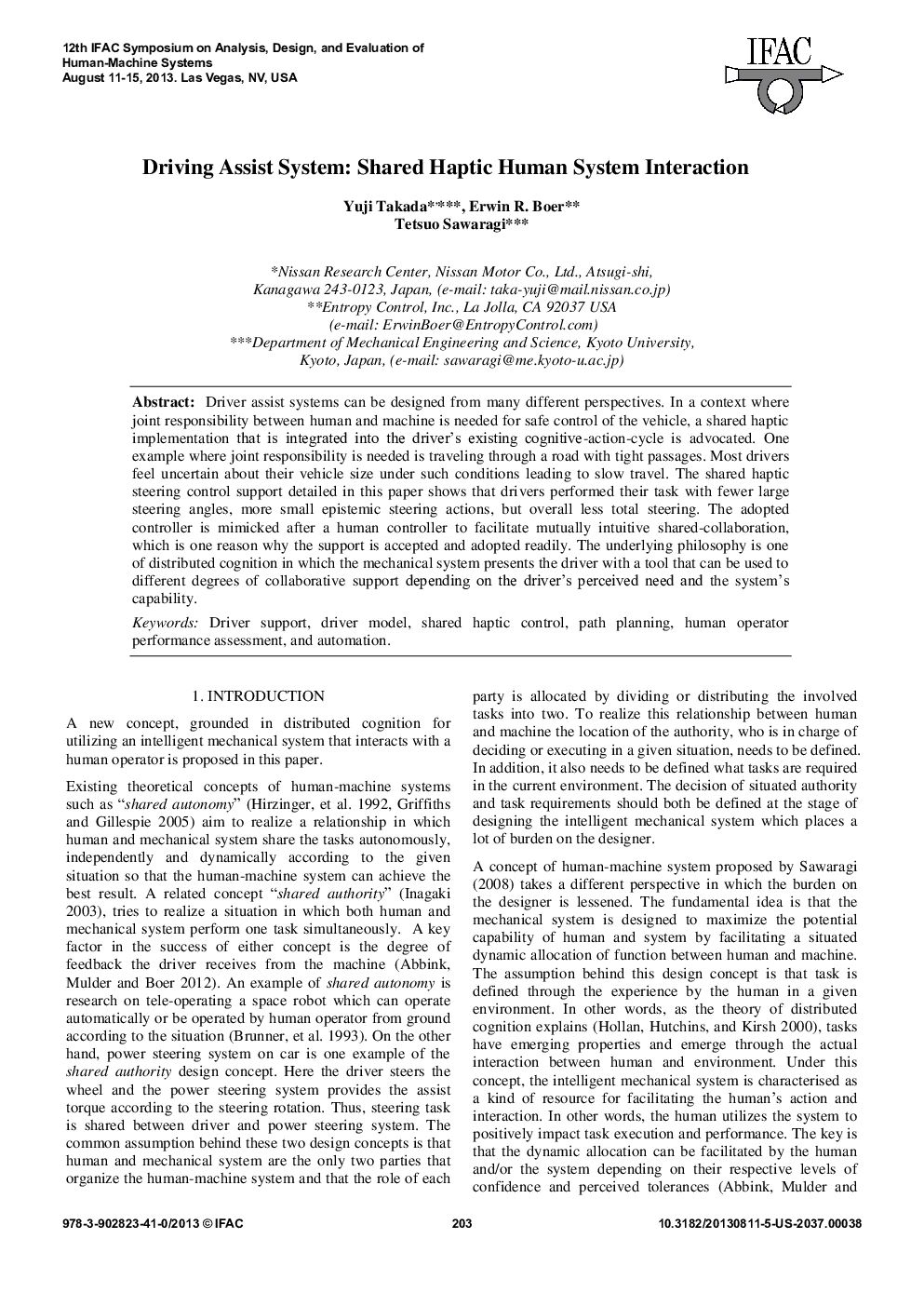| کد مقاله | کد نشریه | سال انتشار | مقاله انگلیسی | نسخه تمام متن |
|---|---|---|---|---|
| 716249 | 892218 | 2013 | 8 صفحه PDF | دانلود رایگان |

Driver assist systems can be designed from many different perspectives. In a context where joint responsibility between human and machine is needed for safe control of the vehicle, a shared haptic implementation that is integrated into the driver's existing cognitive-action-cycle is advocated. One example where joint responsibility is needed is traveling through a road with tight passages. Most drivers feel uncertain about their vehicle size under such conditions leading to slow travel. The shared haptic steering control support detailed in this paper shows that drivers performed their task with fewer large steering angles, more small epistemic steering actions, but overall less total steering. The adopted controller is mimicked after a human controller to facilitate mutually intuitive shared-collaboration, which is one reason why the support is accepted and adopted readily. The underlying philosophy is one of distributed cognition in which the mechanical system presents the driver with a tool that can be used to different degrees of collaborative support depending on the driver's perceived need and the system's capability.
Journal: IFAC Proceedings Volumes - Volume 46, Issue 15, 2013, Pages 203-210